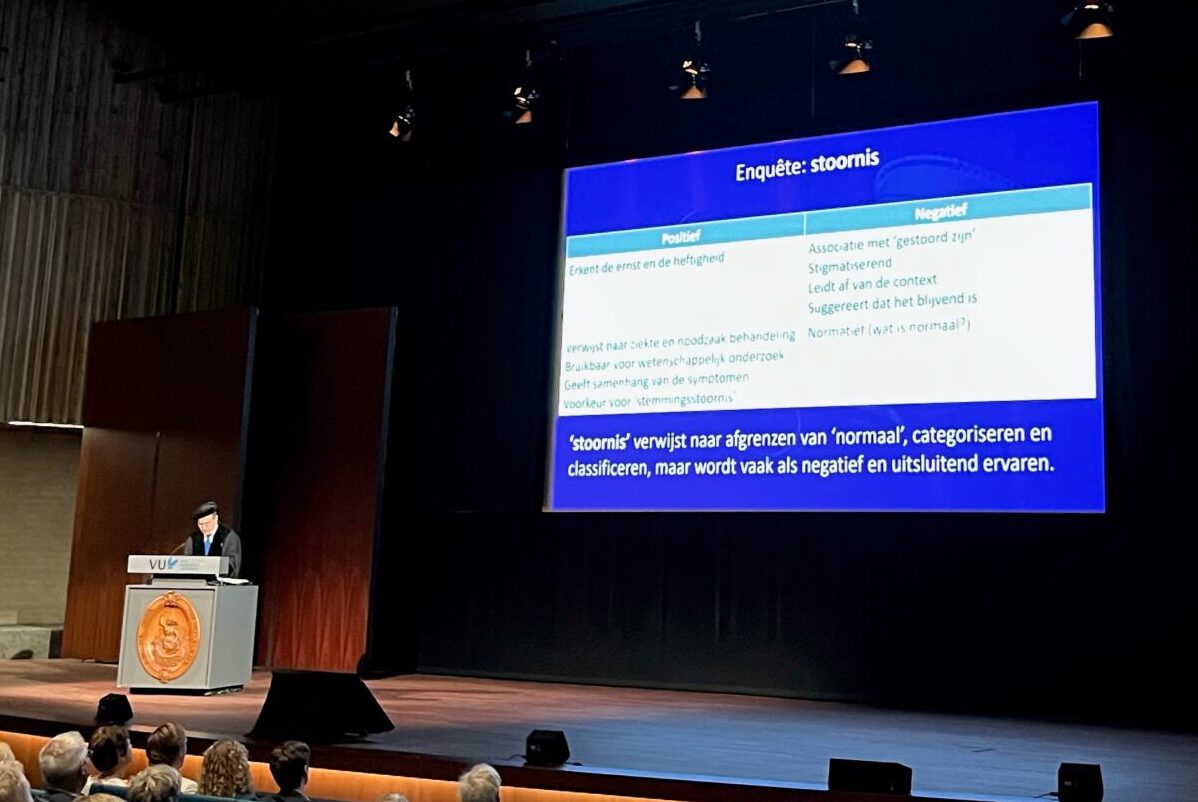Farewell lecture prof. dr. Ralph Kupka
Ralph Kupka is stepping down as Professor of Bipolar Disorders. With his impressive career, he has made an indispensable contribution to the care and development of care for people with bipolar disorder and their loved ones. On Thursday the 20th of June he presented his farewell lecture entitled “Bipolar disorder/illness/vulnerability: what do our words say?
Kupka began his career studying medicine with the goal of subsequently specializing in reconstructive surgery. His interest shifted to psychiatry when he was offered a position at the – then AMC – where he worked with young patients with psychoses. “I ended up in the middle of a very ambitious team with a lot of enthusiasm and dedication. That was so fascinating that I changed my course,” Kupka says.
Focus on bipolar disorders
Since 1995, Ralph Kupka has increasingly focused on bipolar disorders. Together with Professor Willem Nolen in Groningen, he worked on a major study of this disorder, leading to his doctorate in 2003. Since then, he has played a leading role in both clinical practice and academic research on bipolar disorder. Much research stems from direct patient care. Over the past 35 years, he has spoken with (and about) thousands of patients as a psychiatrist at AMC, UMC Utrecht, Altrecht and GGZ inGeest. Sometimes once, sometimes for years. “What always stays with you is the contact with patients. You learn from patients how they themselves view their problems,” Kupka says. He stresses the importance of listening well without prejudice and communicating carefully to avoid misunderstandings and create a supportive environment. Psychiatry is more than just treating disorders; it is also about understanding people as a whole, including their context and experiences.
What do our words say?
In his farewell lecture, Kupka discussed the power of language in psychiatry. “Language is the most powerful tool in treating people with mental health problems. Mental illness is painful, but the words we choose to name it often are too. Words can be perceived as helpful, supportive, soothing and understanding, but also stigmatizing, harsh and derogatory,” he explains. “I have experienced the power of words, and also how sensitive it sometimes turns out to be what you say and how you say it.”
The future
Kupka sees psychiatry’s future primarily in better understanding the neurobiological and genetic foundations of disorders and combining this knowledge with personal psychology and recovery-oriented care. The connection between what is happening in society and in the mental health system needs to be even better. Working in multidisciplinary teams is important here and looking back to previous movements. “Never look only at today, but also learn from everything that has been before, and shape the future that way,” he emphasizes.
Enduring impact
Although Kupka is stepping down as a professor, his legacy lives on in the many professionals he has inspired and trained. With mentoring doctoral students, teaching students and contributing to scholarly articles and books, his work has a lasting impact.





